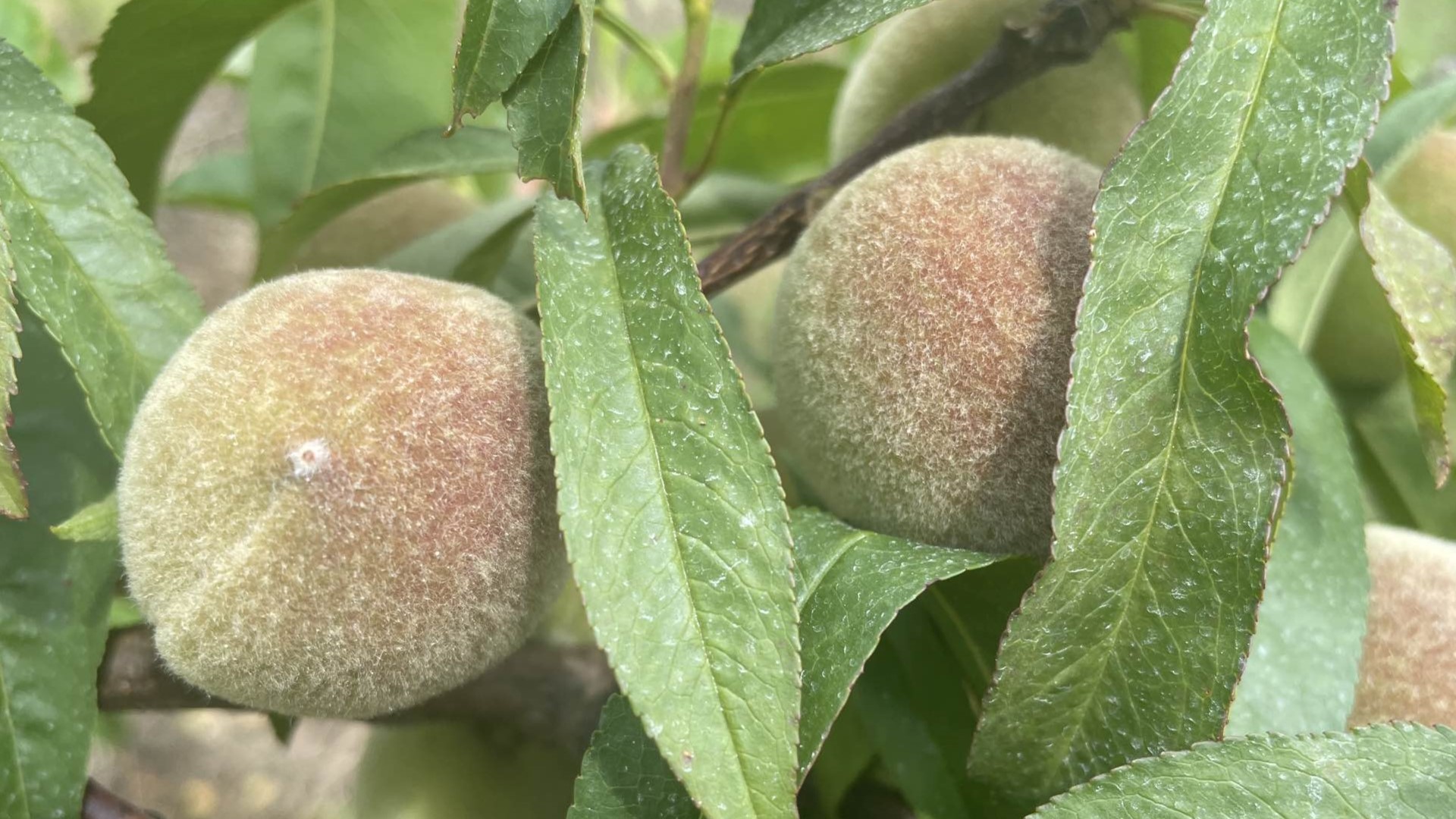ALTO, Ga. — There will be slim pickings for peaches at the grocery store, especially if shoppers are trying to find Georgia-grown fruit this summer.
Farmers across the state report the weather earlier this year is impacting this season's crop.
Jarl Echols is the co-owner of Jaemor Farms in Alto. He says from all their peach trees combined, the farm typically sees 30,000 to 40,000 bushels of peaches. Right now, they only expect to see 3,000 to 5,000 bushels, making this season's crop a poor contender.
Echols could only find one peach when he checked one of his Elberta trees on Tuesday.
"People won't be able to buy bushels, but they'll be able to buy a pack of peaches," Echols said.
The farmer said this isn't common for Georgia's iconic fruit.
"This has been a little bit of an unusual year. We had a pretty hard freeze at Christmas," Echols said, adding there was another freeze in March.
"The last freeze really hammered just about everything we had," Echols said, "We're in pretty good shape on a few varieties, but not really good overall—probably somewhere around a 90 percent kill, like most of Georgia is."
His crop saw an early bloom as February saw warmer temperatures. The back-and-forth in the weather did not help his harvest.
As a result, he said shoppers could see peach prices go up as this trend is something farmers statewide are experiencing.
Southern Belle Farms, in McDonough, also reports similar losses.
University of Georgia Agriculture and Natural Resouces and Peacch Agent Jeff Cook said middle Georgia farms are seeing a 95 percent kill.
"This is the worst crop I've ever seen," Cook said.
He said the economic impact will hurt the industry tremendously.
"For this area right here, it's about a $45 million impact," Cook explained.
This poor crop especially hurts the farmers and temporary agricultural workers with an H2-A visa.
To put it into perspective, Cook said the crop can cause people to take a massive salary cut.
"If you expect $100,000 salary for a year and then you get two freezes and salary's knocked down to 50, and it has a big impact," Cook said.
When Georgia has a short crop, farmers lean on the Carolinas, but Cook says the Carolinas are also struggling. So, if grocery stores want peaches, they'll have to rely on California.
"We don't have a fruit to protect anymore," Cook said, "We we've only got trees to protect. So, we're cutting corners in our orchards where we can."
The peach crop may be struggling, but Echols said their strawberry crops are doing just fine. He said it will help compensate the farm for the loss of peaches.

